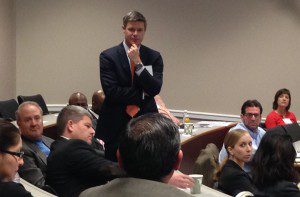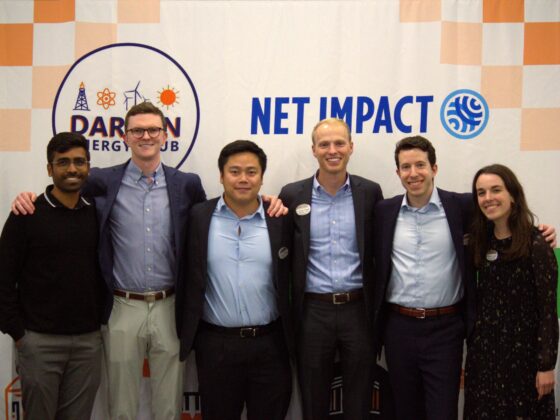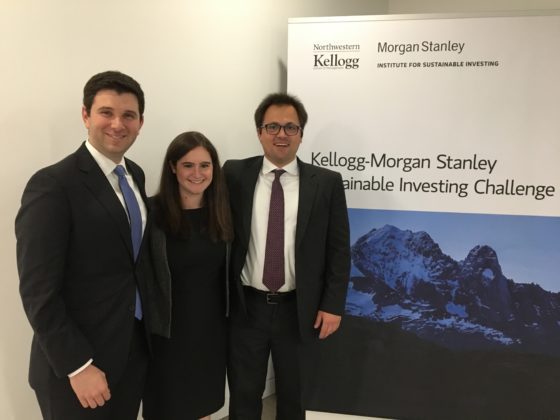What does it take for a business to build resilience in today’s complex and ever-changing world?
Since there are multiple factors that contribute to business resilience, it cannot be boiled down to just one characteristic, concept or business strategy. And yet, when we researched resilient organizations, we did observe common themes, shared values and many similar practices among them.
This spring, the Darden School Institute for Business in Society hosted the 2015 Business and Economic Resilience Conference – to learn from Virginia companies that have demonstrated resilience successfully and to share these lessons with other local businesses.
One common characteristic we observed among successful resilient businesses is a shared commitment to enriching their local community. These companies invested heavily in their communities, building deep connections that, in turn, helped them build resilience.
One such organization is Marstel-Day, a woman-owned environmental consulting firm headquartered in Fredericksburg, Virginia, with several offices in other states.
Marstel-Day
“Our company faced a difficult choice: to fall back or to persevere ….We decided to lean into the wind and almost doubled our staff when many other employers were downsizing.” — Rebecca Rubin, CEO, Marstel-Day

Acting on a deeply-held commitment to create sustainable solutions, Marstel-Day’s President Rebecca Rubin has made hard choices along the way that have built a strong company culture, deep ties to the local community, and solid growth and financial results.
Innovation has defined the business from the start, with the creation of the Conservation Conveyance authority, which allows the Department of Defense to transfer land to public and private conservation groups for permanent protection. Five years after Marstel-Day developed this system and saw it signed into law, nearly a quarter of all land shed by the DOD under Base Realignment and Closure was conveyed for conservation using this authority. Marstel-Day is also the only company that is certified to the Platinum level by the National Standards Foundation as a sustainable service provider.
Marstel-Day’s main office location is in a federally designated Historically Underutilized Business Zone or HUBZone, defined as an area of high unemployment and low income. “The program requires that we locate our principal office inside a HUBZone census tract, and that at least 35 percent of our employees must reside in qualifying HUBZone census tracts as well,” Rubin said. “We’ve gone beyond that — we have seven HUBZone office locations, including Fredericksburg and Richmond, Virginia, and 40 percent of our workforce resides inside qualifying HUBZone census areas — including the majority of the firm’s business partners.”
It has not been easy, Rubin said, but it’s the right thing to do. “It’s significant from a community resilience standpoint that when our people go out into the economy and spend their paychecks, that most of that money is going to be spent locally, in areas that need it,” she said.
Faculty Insight by Professor Mike Lenox
Marstel-Day illustrates that thriving businesses are ones that marry strong values with a powerful mission. Its people are helping their clients make progress on some of the most vexing sustainability challenges while simultaneously living the company’s mission and values in its internal operations. By locating and employing staff from underutilized communities, the organization builds deep connections that provide resilience in the face of ever evolving business conditions. Marstel-Day is enriching its local community and the world.
Mike Lenox is the Samuel L. Slover Professor of Business and serves as associate dean and academic director of Darden’s Batten Institute for Entrepreneurship and Innovation. His research expertise is centered on technology strategy and policy and has been cited in The New York Times, Financial Times, The Economist, the Dow Jones Newswire and the Associated Press.
To learn more about business resilience, read the full report, Ideas to Action Special Edition: Business and Economic Resilience; What Virginia Businesses Can Teach Us.





